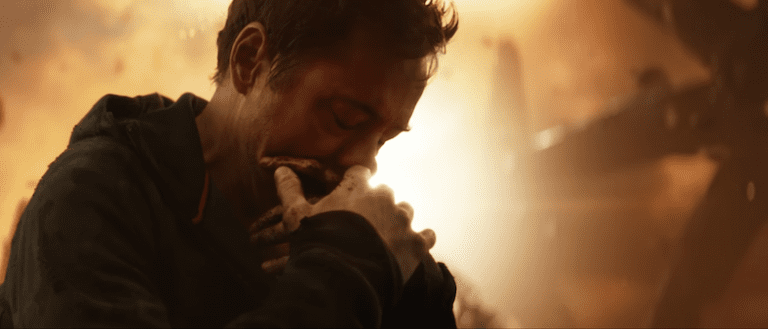
The Long Saturday
In Christianity, we learn about Easter as children well before we process Good Friday. We learn that Jesus rose from the dead before we learn how he died. We know the end of the story. And technically, Jesus’ disciples did, too. Jesus told them what would happen—just like we Marvel fans know there’s another Avengers movie on its way.
But that didn’t seem to help. Perhaps they forgot. Perhaps they lost their faith, seeing the man they followed hanging from that cross.
The horror would’ve gone beyond losing a friend. Jesus was The Way, The Truth, the Life. Now, his life was gone in a wash of blood and pain. His own way led him to Calvary and death. “What is truth?” Pilate asked Jesus before he died. The question, that Saturday, must’ve felt hauntingly relevant and unanswerable. What is truth, now that the truth they believed in was dead?
In time, you will know what it’s like to lose, Thanos said. That’s what Saturday must’ve felt like: A loss, the most awful loss in the history of the universe. The bad guy won.
Weird that the most popular religion in the world would’ve been built on that, right? But Christians believe that loss was actually a win. That single death sowed the seeds for life.
Whether it was intended or no, I think we see echoes of that story in Infinity War—seeds that may blossom in the next Avengers movie. Indeed, we’ve seen foreshadowing of it throughout the entire MCU.
I go into Marvel’s penchant for nihilism in more detail in a story I wrote for another website, but lots of villains in the Marvel Cinematic Universe believed that the secret to universal peace and perfection is through wholesale slaughter. The most obvious culprit was Ultron from Avengers: Age of Ultron. The sentient, super-strong computer saw that humans are foolish and self-destructive. Best to clear the decks of us and start with a more perfect creation… something made in his image. Vision—also a bit of a human-computer-something-else hybrid—sees humanity’s weaknesses but loves them just the same.
“They’re doomed,” Ultron tells Vision.
“Yes,” he admits, “but a thing isn’t beautiful because it lasts.”
Their exchange and outlook on humanity feels deeply spiritual to me—almost like an exchange between Satan and Jesus. Satan looks at our flaws and can’t understand why God loves us so. But God does, anyway.
In Infinity War, Thanos, like Ultron, is a pragmatist. He sees the universe as a thing of finite resources and life within that universe constantly expanding and consuming. He’s worried about cosmic overpopulation. The solution, naturally, is to kill off half its life so the other half can live better. His desire is to bring what he calls “balance” back into the universe. He considers himself the good guy.
And if one just looked at life as one would a spreadsheet, perhaps Thanos has a point.
But when you consider life a miracle, a sacred gift, the calculus changes.
“Today we don’t fight for any life,” T’Challa/Black Panther says. “We fight for all of them.”












